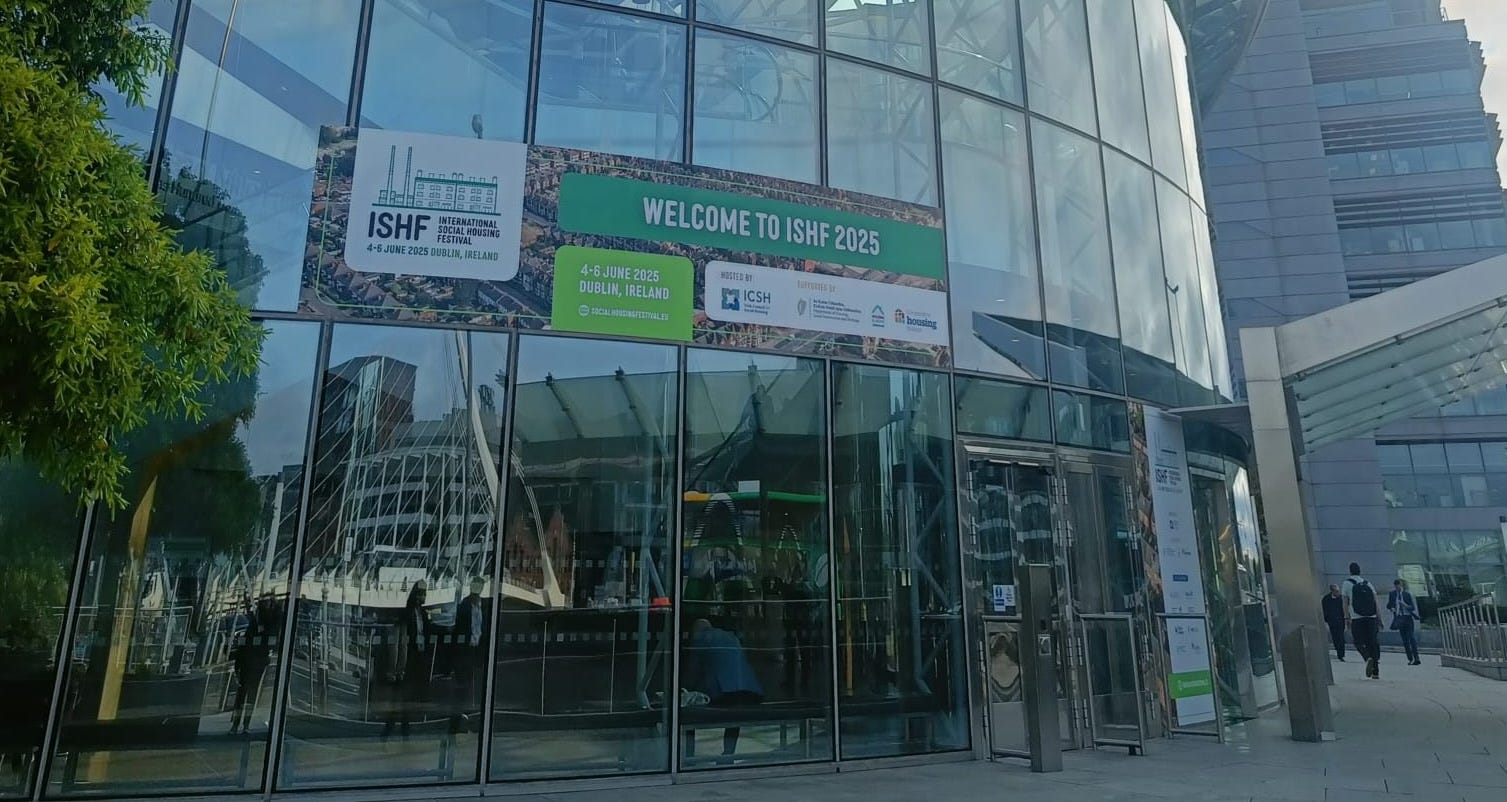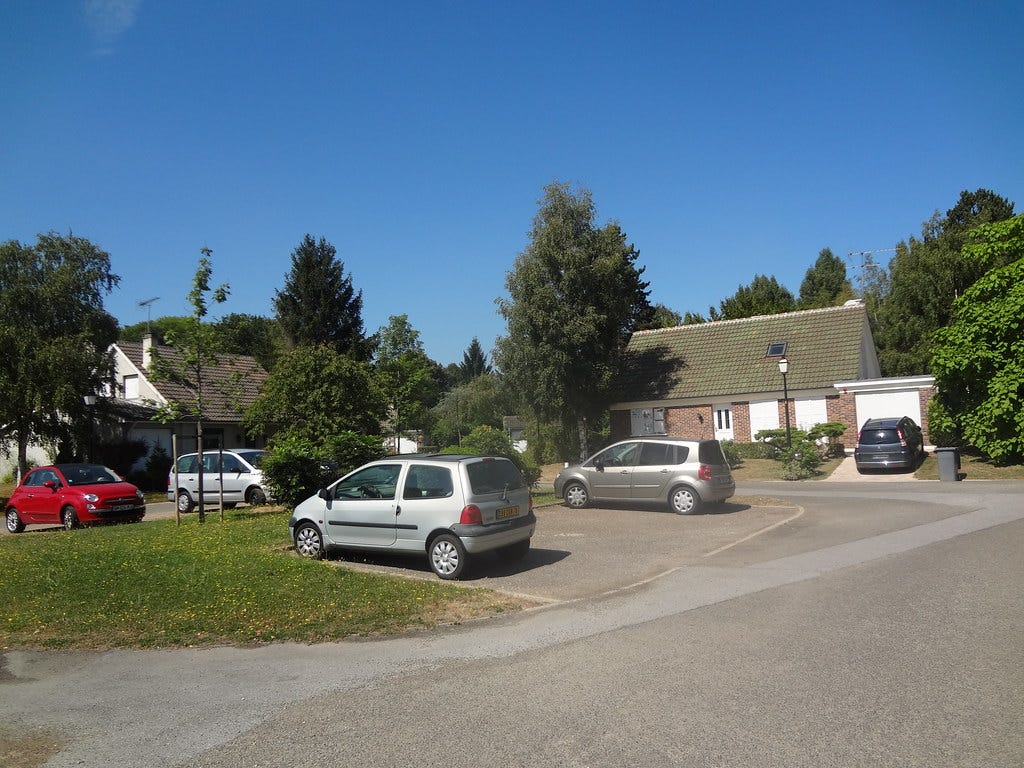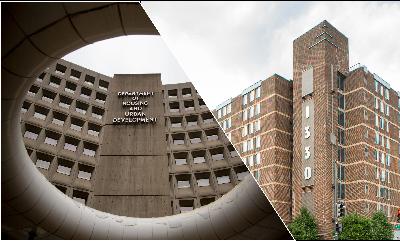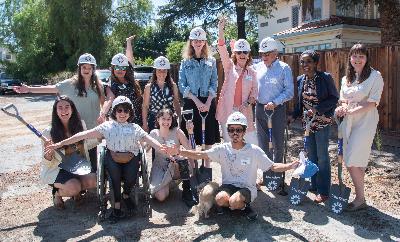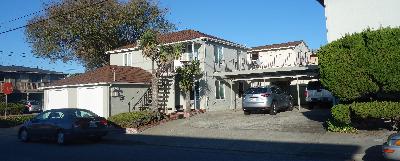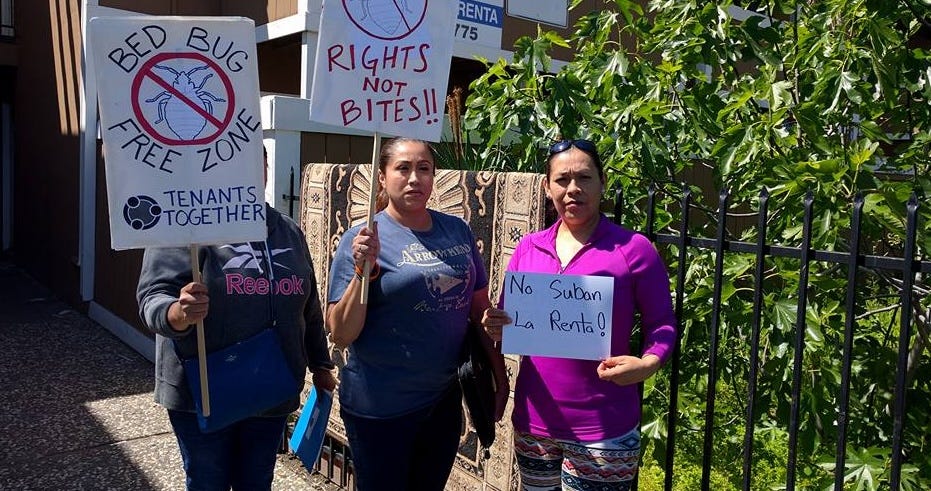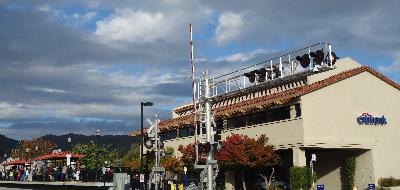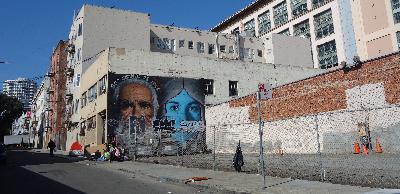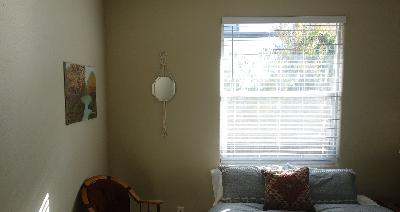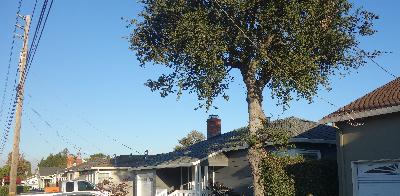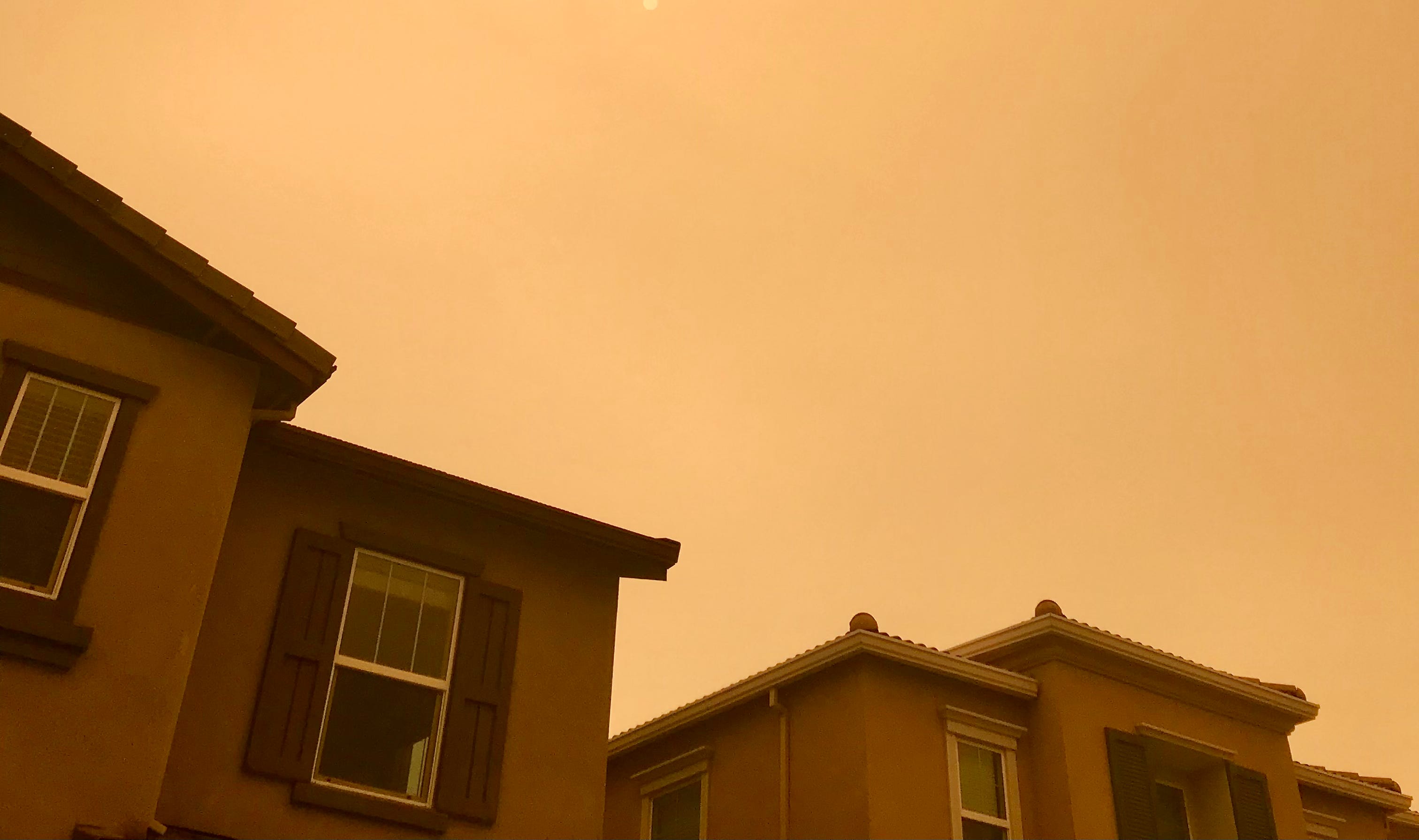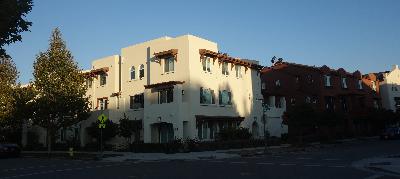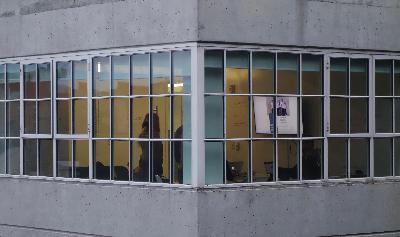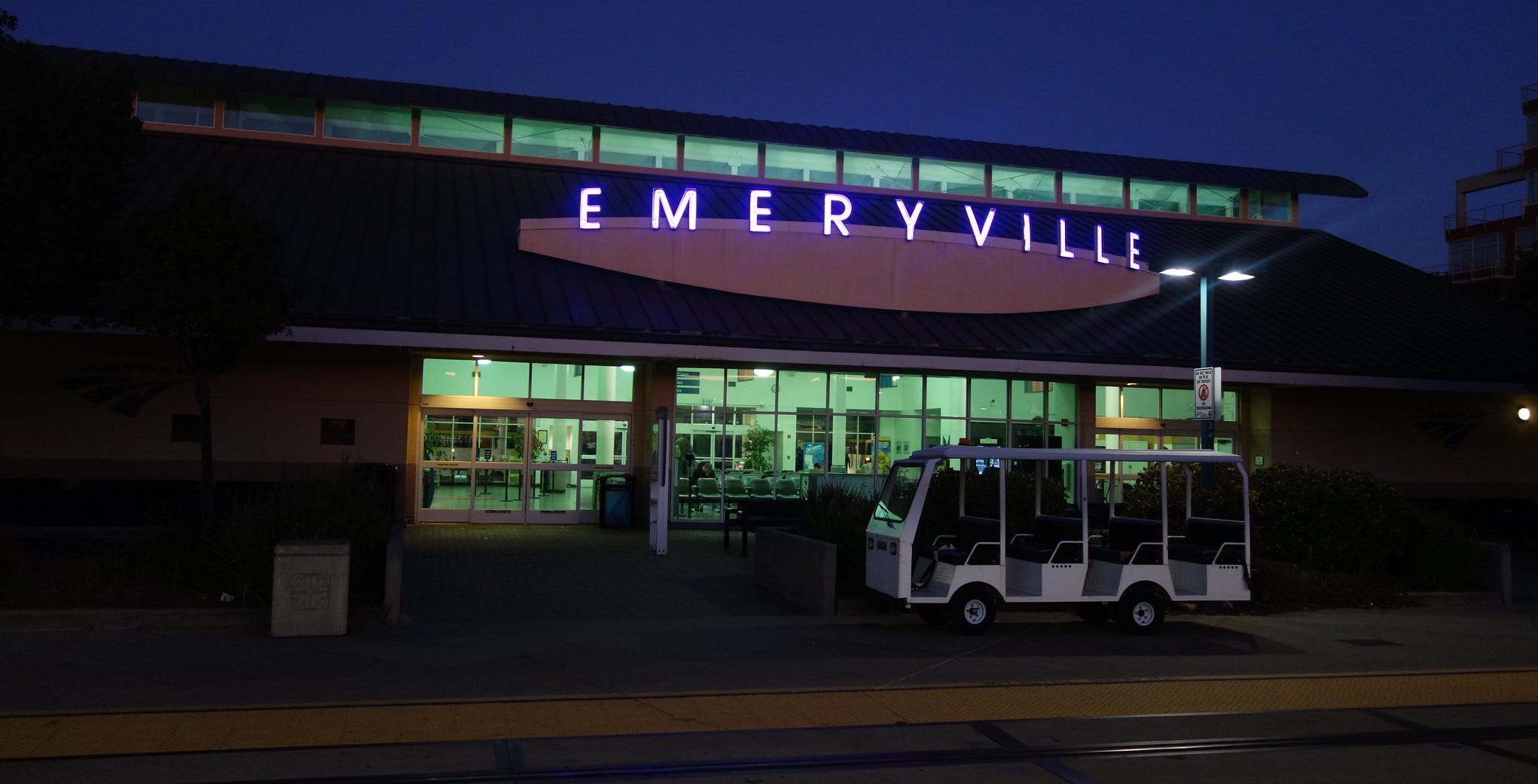Discover Housing After Dark
Housing After Dark

Housing After Dark
Author: Alex Schafran
Subscribed: 4Played: 1Subscribe
Share
© Alex Schafran
Description
Housing is too expensive. Our communities are too unequal and too segregated. We’re not even remotely prepared for climate change, which is already here. Passionate people and organizations come up with smart, workable answers to these problems. But a diverse set of entrenched political divides keep us from realizing those solutions.
Join practitioner, researcher and writer Alex Schafran once a month for the latest on the past, present and future of housing, planning and urban development. Guests include housing practitioners, researchers, elected officials and more.
Let’s all work together towards a better housed California.
https://alexschafran.substack.com/
alexschafran.substack.com
Join practitioner, researcher and writer Alex Schafran once a month for the latest on the past, present and future of housing, planning and urban development. Guests include housing practitioners, researchers, elected officials and more.
Let’s all work together towards a better housed California.
https://alexschafran.substack.com/
alexschafran.substack.com
21 Episodes
Reverse
Of course all of our episodes are special, but this one is extra meaningful because our amazing editor and producer Tina Lee is stepping out from behind the mic for the first time, joining us in a new role as special correspondent. Tina was an attendee earlier this summer at the big social housing festival in Dublin, Ireland, hobnobbing with an international array of interesting people with generally interesting ideas about housing, including a few Housing After Dark alumni.Today, we are digging into what she saw and heard at the festival, including the differences between Americans and everyone else when it comes to social housing talk. If you're new to the social housing world, check out some of our archives on this site, including recordings done at the Institute for Metropolitan Studies at San Jose State University, where I'm a visiting scholar. If you're a long time social housing nerd, or have recently been to Vienna or Singapore or France or Denmark, or so many other places that do housing better than we do, and you're ready to do things differently. I hope this episode helps nudge the process along.Social Housing, for me, is two things, full stop. It is shorthand for a better housing system. It’s ideal for folks who know only a systemic approach will work and are committed to actually doing change across the full housing system, and it's a call to Americans to recognize that other countries do housing better and that we can learn from elsewhere, especially if we're willing to adapt things to our crazy, sprawling, hyper diverse and historically messed up land where we have no choice but to adapt to the facts on the ground.Thanks, as always, to our listeners and subscribers. This podcast also marks the beginning of the end of Tina's tenure as editor, and I just want to thank her, from the bottom of my heart, for making this podcast possible. There would be no Housing After Dark without her. As Tina moves on, it's also transition time here at the podcast. In order to continue, Schafran Strategies needs a partner. If you or your org or company can see a future in which you have a great housing podcast as part of your offering to the housing world, hit me up, and let's see if we can't do something valuable and amazing for the housing community together. Get full access to Where We Go From Here at alexschafran.substack.com/subscribe
Today’s guest, Dr. Magda Maaoui, is an Assistant Professor of Urban Planning at the Harvard Graduate School of Design, and a Researcher affiliated with the Joint Center for Housing Studies. Prior to that, she was an Urban Planner and Research Associate at the Atelier Parisien d’Urbanisme (APUR), which is a key regional planning organization in greater Paris, where Magda grew up. I’ve had the pleasure of knowing Magda for more than a decade, ever since she was an intern at our own Bay Area regional think tank, SPUR. Magda is one of the most thoughtful, intelligent and passionate housers I know, and someone uniquely positioned to help American housers understand all that team France has to offer us. Join us for a nerdy chat about French housing, about why France and the US are more alike than we think, and about what we can learn from French success. I hope you enjoy this conversation, and thanks as always to all of your who support the podcast and substack. If you are not already a subscriber, consider joining? Allez les Bleus! Get full access to Where We Go From Here at alexschafran.substack.com/subscribe
In today’s episode we dive deeper into what is happening to our federal housing system. If you’re like me, you know enough about federal housing to get in trouble but not enough to follow every twist and turn of HUD, FHA, Fannie, Freddie, and Ginnie and many more. Thankfully, today’s guest, Ethan Handelman, does know enough and does follow it. His regular LinkedIn posts about what is being dismantled, paused, canceled or attacked in the federal housing world have been a lifesaver.Ethan was Deputy Assistant Secretary for Multifamily at HUD in the Biden-Harris Administration and I hope you’ll enjoy our conversation, one that’s not entirely without hope. We talk about some kernels of hope in bipartisan legislation, areas of housing where change is possible, and we give more love to housing vouchers. Thanks to all of you who listen and subscribe. If your organization is able to sponsor us, reach out and say hello. We’d love to keep being able to bring you Housing After Dark and for that, we need some help. Get full access to Where We Go From Here at alexschafran.substack.com/subscribe
I’m super excited about today’s episode because it’s one of those episodes where I’m learning about something I should know more about: housing for people with disabilities.Today’s guest, Louisa Bukiet, is a Housing Development Manager at The Kelsey, a super innovative organization based in San Francisco that's trying to speed up the development of supportive, inclusive, community housing. Join us for a wide-ranging conversation about The Kelsey’s work, transforming the affordable housing system to make it more inclusive, and why being thoughtful still really matters when it comes to delivering housing.Housing After Dark is a production of Schafran Strategies, and we’re also the sole sponsor—but that could change if someone in the community reaches out to join us. Come help us keep the podcast going and keep it free and accessible. Especially in these difficult times, we need your support to stay focused on both the present and future of housing. Get full access to Where We Go From Here at alexschafran.substack.com/subscribe
Jonathan Fearn is someone I’ve gotten to know slowly over the past five years the old fashioned way—by seeing him at housing events. Jonathan is a Senior Vice President of Real Estate Development at Oakland’s own Signature Development Group, where his day job is to build buildings, most of which are for people to live in. But for me, and I imagine many of you listening in, Jonathan is someone known for what he calls his “extracurriculars”—serving on public committees and non-profit boards across the Bay Area. He’s never the loudest person in the room, even when he’s on stage, but when you look at his list of accomplishments and the places where he shows up, you’ll realize how quietly important a person like Jonathan is to moving all of Bay Area housing forward. It’s an honor to have him on the show, and I hope you enjoy our wide-ranging conversation on everything from the interconnectedness of the housing economy to social housing. Get full access to Where We Go From Here at alexschafran.substack.com/subscribe
Shanti Singh is the legislative director for Tenant’s Together, a statewide Coalition of local tenants rights organizations and one of California’s most important voices for tenants rights and housing protections. Shanti herself is one of the most interesting people I know in this business, someone with a diverse background—including time in finance—who understands both the technical and political side of housing. She’s an intellectual and an activist, and someone who I have learned I can trust— a trust that enables us to disagree from time to time, not just in person but on air.In this episode, we discuss the past, present and future of rent control and tenant protections in California, the challenges and opportunity of Prop 33, and our shared love of social housing as an idea. This is also the first episode where my guest and I talk in depth about somewhere we disagree. I’m grateful to Shanti for coming on board to do this, and what enables this to work is partly that trust that we have built. It also comes from an important fact—we share a vision of a better housed California, where amongst many other things, tenants have real rights. Like with many housing disagreements, the issue is over how to get there, not where we need to go. There is more consensus about the destination than the path, and I hold onto this fact as a key source of hope for California housing. Get full access to Where We Go From Here at alexschafran.substack.com/subscribe
When you work in the nonprofit sector in the US, philanthropy is everywhere, even when it’s sometimes trying to pretend it's just following the expertise on the ground. One of the many reasons for which I like and respect Ruby Bolaria Shifrin, the VP for community at the Chan Zuckerberg Initiative, or CZI, is that she’s not afraid to lead. As we discuss today, Ruby has a background as both an organizer and developer, and has now spent the past six years funding a who’s who of Bay Area and California housing orgs. It’s given her a unique eye for housing politics, and for what she thinks philanthropy can and cannot do, in housing. It’s also made her one of the smartest and most thoughtful people we have in the business, someone who is unafraid to nudge us all forward, and to support a wide range of housing ideas and organizations, including some who may think they are on different sides of the housing fight.Thanks as always for tuning in, and if you like the show, please give it some love on social media or pass it along to someone who needs to hear Ruby or any of my other amazing guests. Get full access to Where We Go From Here at alexschafran.substack.com/subscribe
Today’s guest, Paul Fordham, is doing something that is so much harder than it should be—housing the unhoused in one of the wealthiest counties in America. As the Co-Chief Executive Officer of Homeward Bound, he helps lead one of Marin County’s most important homelessness organizations, a group which provides a wide range of housing and services to the County’s most vulnerable residents. His work for me is both personal and professional. Marin is where I’m from, a place of incredible beauty, wealth, and privilege. It’s also a place that has been hostile to housing for generations, and as a result it is one of the most segregated places in the Bay Area. It’s also not entirely rich—one third of Marin-ites rent, and there are people all around the county barely hanging on to the roof over their heads. But Marin is showing signs of change on the housing front, in part because of the work of people like Paul and organizations like Homeward Bound.I will do more to feature people doing transformative work in Marin in coming episodes, including some of the projects I am honored to be a part of. I will also feature much more about the professionals working on the homelessness side of housing, part of my own long overdue effort to bridge the homelessness / housing divide, a divide which is still very real, even if most of us in the business know it shouldn’t be.In the meantime, I hope you enjoy this conversation with this smart and savvy Mancunian, a person who has become an important leader and a critical voice in housing in a place very different from where he grew up. Thanks as always for tuning in, and if you like the show, please give it some love on social media or pass it along to someone who needs to hear Paul or any of my other amazing guests. Get full access to Where We Go From Here at alexschafran.substack.com/subscribe
Today’s guest, Nikki Beasley, is someone I first came across during a pandemic era webinar. I listen to a lot of webinars about housing and Nikki, the Executive Director of Richmond Neighborhood Housing Services, is a frequent contributor to the world of housing ideas. If you haven’t heard her, she’s great live, but her intelligence and charisma are not the only reasons why I am a card carrying member of her fan club. She also keeps it real, and too often she’s the only person in a housing space talking about homeownership, even when many of the folks in the room are homeowners too. Our conversation gets into this dynamic and talks about how and why she is willing to stand up for a housing system which gives BIPOC households a real choice in whether to own their housing in one way or another. I hope you enjoy listening.Thanks as always for tuning in, and if you like the show, please give it some love on social media or pass it along to someone who needs to hear Nikki or any of my other amazing guests. Get full access to Where We Go From Here at alexschafran.substack.com/subscribe
Today’s episode is about housing innovation, or really about the women and the organizations who help support innovation wherever it happens. My guests, Jenna Louie from Ivory Innovations and Michelle Boyd from Terner Labs, work to identify, nurture, support, and build a wide range of innovative approaches to housing. They support new companies, new orgs, new people, new policies and new ideas. They help others help themselves, and roll up their sleeves and build stuff directly. They also were a ton of fun to talk about housing, and if you like nerds talking about off-site construction, ADU policy, capital, scale, climate and more, and all in under an hour, this is definitely the episode for you. Thanks as always for tuning in, and if you like the show, please give it some love on social media or pass it along to someone who needs to hear Michelle or Jenna or any of my other amazing guests. Get full access to Where We Go From Here at alexschafran.substack.com/subscribe
Welcome to the latest edition of Housing After Dark. I’m your host, Alex Schafran. Today’s guests, Jill Shook and Phil Burns from Making Housing and Community Happen (MHCH) in Pasadena, came to me by either happenstance or divine intervention, depending on your perspective. Jill is the co-founder of MHCH, someone with a background in ministry who became a houser because people in her community needed her to be. She’s the editor of Making Housing Happen: Faith Based Affordable Housing Models and a contributor to Gone for Good: Negotiating the Coming Wave of Church Property transition. Philip Burns is a practicing planner and the principle at the Arroyo Group, and one of the leaders of the Congregation Land Committee at MHCH, a group whose work we will discuss at length today.I met Phil Burns in a line at Housing California, when he introduced himself with the greatest line possible, “Hi, I listen to your podcast.” It turns out that Phil not only listens, he happens to be working on one of the most important housing issues in California, one I have been hoping to feature on the show—the implementation of SB4, the recent bill which many, myself included, hope will launch a historic wave of affordable housing development on land owned by churches, synagogues, mosques, ashrams, temples and other religious communities. SB4 is important on so many levels—it is part of a wave of streamlining legislation, and a good test to see to how and where streamlining really works to produce affordable housing at scale. Along those lines, it’s a test of our ability to really implement legislation, and to build the kind of implementation coalitions which often get forgotten after the bill is signed. For SB4 to be successful, it will require intermediaries—like Making Housing and Community Happen—who can work effectively and ethically with religious organizations to help them build housing in a way that makes sense to them, and to help them avoid the many pitfalls and predators which can undo any housing development dream. And it is a bill that can and hopefully will be different on a moral or ethical level. SB4 is not just another streamlining bill—one can hope, perhaps naively, that by bringing more institutions with morals and ethics and community service in their DNA deeper into the housing system, we can nudge a system that is too often cruel and exploitative into a space that lets us all sleep better at night, literally and figuratively.Thank you to everyone for joining us. I hope you enjoy today’s conversation. If you enjoy it, please give us some love on social media or pass it along to other housers in whatever way you can. Get full access to Where We Go From Here at alexschafran.substack.com/subscribe
Maeve Elise Brown came into my housing life in 2017. I was working with Steve King at Oakland Community Land Trust and Anna Cash, who is now at the City of Berkeley, on what we called Housing Vulnerability Analysis. This was our attempt to develop a way of seeing housing in a city through a simple question: how vulnerable was any given resident to being displaced (for whatever reason). One thing we discovered in this analysis was that low income homeowners were some of the most vulnerable people in Oakland. They had, and still have, few specific legal protections, or outside sources of financial support and even fewer advocates. We knew this in part because Maeve, and the organization she helped found and now directs, HERA (Housing and Economic Rights Advocates) is one of those rare advocates. Since that time, Maeve has always been one of the people that I could count on being clear eyed on the challenges that low income and BIPOC folks face when it comes to holding onto their housing, whether they rent, own, or somewhere in between. I hope you enjoy our conversation, which ranges from remembering the foreclosure crisis to why credit has become so important to housing of all kinds. Get full access to Where We Go From Here at alexschafran.substack.com/subscribe
Welcome to Housing After Dark, I’m your host, Alex Schafran. Today’s guest is Warren Logan, a planner and activist who has worked for city agencies on different sides of the Bay. He is now a candidate for political office, specifically of Oakland City Council to represent District 3, right down the street from where I live. Warren is one of the most thoughtful people when it comes to how our public sector operates, how transportation and housing fit together, and he backs up this thoughtfulness by doing something truly difficult — showing up consistently. I struggle with electoral politics, but given that 2024 will be an election year unlike any other, I knew I couldn’t ignore it much further. I hope you enjoy our wide ranging conversation which covers everything from his family history in housing, to the transportation/housing nexus, to why city planners should run for office. Get full access to Where We Go From Here at alexschafran.substack.com/subscribe
Welcome to an extra special insurance edition of Housing After Dark. I’m your host Alex Schafran. One of the goals of this podcast is to shine light on the full extent of our housing system, pushing beyond the issues that folks think of as “housing.” Today we dig into one of the most important ingredients in housing: insurance. Joining me today are two people from very different corners of the insurance and housing question: Justin Dove, a longtime insurance broker and Area Executive Vice President at Gallagher, and Zac Taylor, Assistant Professor at TU Delft in the Netherlands and a scholar of climate finance who has focused extensively on insurance. We dig into California’s insurance crisis, how it impacts housing production and not just existing homes, and what the public sector and industry need to do to ensure that our housing system has the insurance it needs to operate in a challenging climate. Get full access to Where We Go From Here at alexschafran.substack.com/subscribe
Today’s guest is one of the most interesting and thoughtful housers in the Bay Area. I’ve known Gloria Bruce on and off for many years, as she worked her way to becoming the long time Executive Director of East Bay Housing Organizations (EBHO), the largest housing coalition on this side of the Bay Area. Our relationship, like so many in housing, is both professional and personal. I’m not sure that she knows this, but it was a conversation with Gloria during a housing conference street party in Oakland in 2018 which made me realize that I was done with academia and that I needed to be back home working with people like Gloria on a regular basis. I’m proud to say that I’m now a triple member of EBHO. I’m a member, my company is a member, and I’m a member of an organization that is a member, inspired in many ways by her leadership over the years to make EBHO into an organization that supports tenant protections and affordable housing production with equal fervor. Gloria is now Senior Program Officer at the Crankstart Foundation. This conversation was an opportunity for her to reflect on both her work with EBHO and on new housing challenges she is focused on, in particular the persistent divide between two sides of the housing community - those focused on homelessness and the unhoused, and those focused on the rest of the housing system. I hope you enjoy this conversation with someone who is an esteemed colleague, friend and neighbor and someone always worth talking housing with day or night. Get full access to Where We Go From Here at alexschafran.substack.com/subscribe
In today’s episode, we feature one of the most important sectors in housing, housing journalists. I think it’s safe to say that most people, even semi-grizzled academics turned housing professors like yours truly, get most of their news about what’s happening in housing through journalists. Many of us are also sources for journalists or work for organizations with comms teams trying to influence what gets written and recorded. There has also been a noticeable uptick in the quantity of housing journalism as more media outlets add housing coverage in the growing face of a housing crisis and what I like to believe is a growing interest in all things housing. So what does this mean for housing journalists and for those of us who rely on journalists to make our housing ideas, ideas, and campaigns public. Today’s conversation is with Editor-in-Chief, Miriam Axel-Lute and Investigative Journalist, Shelby King from Shelterforce, a publication that I love, a place I’ve been honored to publish, and a site that’s been holding it down in housing long before it became popular. Join me for a conversation on how they became housing journalists, on the state of the field, and how housing journalism needs to take housing reporting to the next level. Get full access to Where We Go From Here at alexschafran.substack.com/subscribe
Welcome to a special birthday edition (my birthday specifically) of Housing After Dark. We’re honored to have inaugural Bay Area Housing Finance Authority Director, Kate Hartley in our virtual studio. I’m a houser through and through, but I’ve spent the past 15 years studying regional government in the Bay Area. It’s very exciting to see housing getting more and more attention at the regional level and more support from local governments who realize that we can only do certain housing things (like housing finance) effectively when we do them together and at scale.I think you will all enjoy this conversation, which includes everything from how Kate got to this point in her career, to where we are all hopefully going with this new agency, which we can all call by its initials, BAHFA. Get full access to Where We Go From Here at alexschafran.substack.com/subscribe
Where We Go From Here is a reader-supported publication. To receive new posts and support my work, consider becoming a free or paid subscriber.About This EpisodeWelcome to a special episode of Housing After Dark. The original episode was recorded in May at a webinar sponsored by my Institute for Metropolitan Studies at San Jose State University (SJSU), SJSU’s Institute for Human Rights, and SV@Home. The event featured a conversation with three of my favorite housers in the Bay including Tomiquia Moss from All Home, Jennifer Martinez from the Chan Zuckerberg Initiative, and Regina Williams from our co-sponsors, SV@Home. The conversion was a wide ranging dive into the hopes, possibilities and need for social housing in California. I was honored to moderate the panel, and since it came at the end of a long affordable housing month just before a long weekend, we figured some of you might have missed it. Now you have an audio and written version and I hope you find it as worthwhile as I did. A special thank you to SJSU’s Gordon Douglas and Bill Armaline for helping put this event together. You can find their brief intros on the webinar version. One of the reasons why we did this panel was we felt it was important to talk about social housing in California beyond the state legislature. As I explain in my Substack piece accompanying this podcast, it’s going to be critical for housers in the state to keep building momentum behind social housing as an idea, as an idea of doing real system change for housing in California. I hope that the legislature passes both bills before it, ideally as one compromised bill. I also hope other important bills that can build the backbone of a social housing system make it through this year. But no matter what happens in the state legislature, it will be up to us housers to reimagine, design and build a better housing system in California. That, after all, is what social housing is all about.This Episode’s GuestsThank you for listening to this episode of Housing After Dark. If you enjoyed this episode, please consider sharing.Interview TranscriptAlex Schafran: Social housing is one of those issues where it really helps to take a bit of a deep breath before we start talking. This isn't a today thing or tomorrow thing. This is a longer term vision for transforming our housing system. I think there's a lot of different pathways that we can take, and the willingness to stick with it is really important. I think you can count on me and all the other folks that are here to be part of this issue in these fights moving forward. First, we're gonna start with a bit of a level set, bring folks up to date with the state of things - why we're talking about social housing. Then, we’ll move into why social housing matters, and the question of what is social housing? One of the challenges and beauties of social housing is that it can mean a lot of different things to a lot of different people. There are a lot of different definitions and understandings out there about what social housing is, as a system, as an idea, as a proposal, potentially as a state agency, etc. Finally, we'll move into the types of actions we hope to see, or that we need to see, for a social housing vision to transform our housing system in some of the ways that social housing voices want to see. Let's start with context. If you’ve been following social housing in the state of California, you may know that there have been a few legislative proposals over the years. There were a couple of different social housing bills in the previous legislative session, and currently [as of May 26, 2023] there are two bills that call themselves social housing bills. Alex Lee's AB 309 would [have originally stood] up a social housing developer, a California Housing Authority, to build housing in the name of the people of the state of California. There's also SB 555, sponsored by Senator Aisha Wahab (Hayward) which would ask the State Department of Housing and Community Development to study a possible social housing intervention for the state of California. In particular, to find a way to build 1.2 million units of housing for our lowest income California's. There are also a handful of other bills that many people consider to be social housing bills. There's SB 584, sponsored by the building trades, which would [have] created a new housing fund, using taxes on short term rentals. There is Senator Skinner's SB 440, which would create a framework for all regions in the state of California to have a regional housing finance agency, like the Los Angeles County Affordable Housing Solutions Agency (LACAHSA) agency that is being built in Los Angeles and the Bay Area Housing Finance Agency (BAHFA) that is being built up here in the Bay Area. You can even go into efforts that the state has made in the previous years, to have teacher housing built, to build housing for students through university funds as part of a social housing shift. This is just a matter of discussion and debate. What's not really a matter of discussion and debate is the fact that more and more people are talking about social housing. One things that really struck me was when I went to an event a few months ago sponsored by our Southern California Associations of Government (SCAG) and San Diego Association of Governments (SANDAG). These are the big regional agencies that together represent around 20 million people in Southern California hosting a discussion on social housing that included local elected officials, local government officials from different small jurisdictions, activists, housing policy wonks, you name it, it had over 400 people talking about social housing in California. Something like that would not have been possible or even imaginable five years ago, and a lot of credit goes to folks in those agencies for being willing to sponsor conversations about social housing. A big shout out to Helmi Hisserich and Jennifer LeSar for helping bring a lot of people to Vienna and really starting to get this conversation running. And many of you will have read the most recent beautiful piece in The New York Times by Francesca Mari, that has been buzzing around my Twitter. It's been buzzing around conversations that I have with people who I've talked about social housing with for years, and with people who I've never spoken about social housing with once. And that, to me, is an important context. Jennifer, I know that more people thinking and talking about social housing is something that you have been thinking about, and that you've been part of creating some of this context. I want to get your sense of where you think we are in this current moment of talking and thinking about social housing.Jennifer Martinez: It is an interesting moment. I’ll admit, I was a skeptic. I was a tenant rights organizer for over a decade. I was really focused on rent control and typical affordable housing stuff. When someone came to me maybe seven years ago and said, “Hey, let's go for social housing.” I was like, “You're crazy. What are you talking about?” It was not at all part of the conversation, one could only wish. I'm too busy trying to keep people from being evicted to worry about a 100 year plan. But here we are thinking about a 100 year plan, which is really exciting. CZI has sponsored folks to go to Vienna. These trips are happening out of California, New York and other places. These trips are taking cohorts of people abroad, Vienna being the premier place to look at how social housing (and I hope we're gonna get into what we mean by social housing in a second) might look and function and feel to communities and then bring those ideas back into our local communities and our state legislature for further discussion. We've been part of supporting organizations that ran a ballot initiative last year, the United to House LA ballot initiative, which was passed. What was really exciting about that initiative, among many things (and the fact that it passed at all), was that it included a social housing component. I believe it's the first revenue source that has a specific carve out for the purposes of experimenting with social housing. And on the heels of that, a bunch of folks from LA city, LA, Board of Supervisors and County, are now in Vienna this week doing some more research and now they have the resources to actually try to implement some of those lessons in LA.The other thing that we're supporting organizations to do such as Housing Now and a few other tenant rights focused organizations who are starting to shift into this question of how do we produce housing for extremely low income people using new tools. They're testing this term social housing. So I think that's the other one of the challenges and one of the things to keep in mind. How are folks trying to do public education around social housing even though the term is ambiguous and not always telling the full story that we want to tell. The other part of the work is narrative context as folks try to figure out how to tell the story. Alex Schafran: That's a great pivot. Let's talk about what social housing is or what it could be and what it means to you. Regina, what is it about the idea of the possibility of social housing that made you want to and SV@Home want to host this event? For those who don't know, SV@Home is our affordable housing coalition here in Santa Clara County which includes a lot of affordable housing developers and many other housing organizations and housing advocates. What is it about social housing, what does social housing mean to you and why is it important that we're talking about it? Regina Williams: Social housing, for us, is about housing that is publicly produced, self-sufficient, and serves a mix of household income ranges. One of the reasons we're so supportive and this is so significant, is because housing in general and affordable housing specifically, has been privatized by our federal government. Right n
Every episode of this podcast is special and everybody who appears on the podcast means something to me, either personally or through the work that I do. But this episode is a bit different because for the first time it features work that I'm doing. Not work that I've done in my past, but work that is a current part of Schafran Strategies, my consulting firm, and a partnership that we have been building with California Community Builders for the last year and a half. The subject of the report [Multifamily Homeownership: Pathways to Addressing the California Housing Crisis] is multifamily homeownership. It was released last week and coming in webinar form on May 31st at 10:00 am PT. Please join us!So what is Multifamily Homeownership (MHO)?Sometimes it looks like a condominium, sometimes it looks like a community land trust, sometimes it looks like an intergenerational family living together in a home where the lines of who owns what are sometimes a bit blurry. This is a subject that is near and dear to my heart, something that comes out of a long engagement with housing tenure, which was the subject of the most recent Substack newsletter [Housing Tenure 101]. It’s a real pleasure to work with somebody like Adam Briones, this episode’s guest, and California Community Builders, on a real exploration. We talk in the podcast about how we dug into material that we didn't fully understand and that we still don't fully understand. It's one of those rare research projects where we didn't necessarily know the answer when we started doing the research. Stay tuned for my interview with Adam Briones, one of the nicest, smartest and most dedicated people in California housing (anybody who knows him will tell you that). It’s a real honor to have him not only on the podcast, but as a research partner, and somebody I'm really excited to work with on housing issues in California for many years to come. To read the full transcript, visit: https://alexschafran.substack.com/ Get full access to Where We Go From Here at alexschafran.substack.com/subscribe
I still remember the first time I heard Emeryville Councilmember and Vice Mayor Courtney Welch speak about housing across the lifecycle. I’m used to hearing elected officials talk about housing, often in really inspiring ways, but it’s not often that I feel like they are pushing us housers more than we are pushing them. Welch was a relatively new elected official from a small but important city that I have studied for years, pushing housers in an area that has frustrated me for a long, long time: our tendency to fight over the right kind of housing to be built, rather than embracing the fact that many, if not most of us, will want and need very different housing at different times in our lives.We need a housing system that enables us to change, to grow up, to grow older, to combine families and households and sometimes separate them. This is something I almost never hear from housing leaders and here was an elected official showing a housing group a simple truth we often ignore.It turns out that Councilmember Welch isn’t just an elected official: she’s a professional houser, someone who has worked across the board in our field - in policy, social work, administration, and communications. She’s worked for a truly diverse set of housing organizations, from one of Alameda County’s continuum of cares providers working to assist people struggling with housing instability and homelessness to the Bay Area Community Land Trust and her current work with the California Housing Defense Fund. She’s also someone who’s not shy about sharing her own challenges in housing and struggles with housing instability, someone who knows what it is to look for housing assistance in the Bay Area which seems to be getting more expensive by the day.It also turns out she’s prepared to push us in a lot more than just housing across the lifecycle, no matter how important that is. She’s one of the most complete housers I have ever met, someone who tries to see the whole system, and figure out ways she can make it better no matter which of her many hats she’s wearing.It’s an honor to have her on the second episode of Housing After Dark, the Where We Go From Here podcast. Thanks so much for joining us.To read the transcript of this podcast, please visit Where We Go From Here. Get full access to Where We Go From Here at alexschafran.substack.com/subscribe


